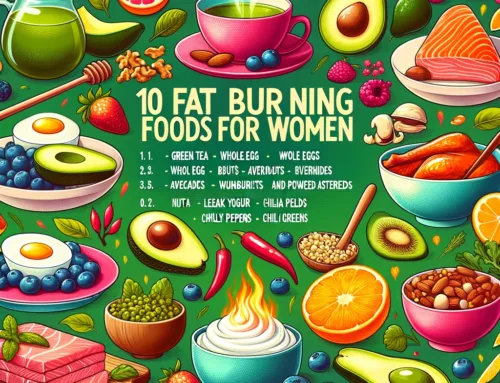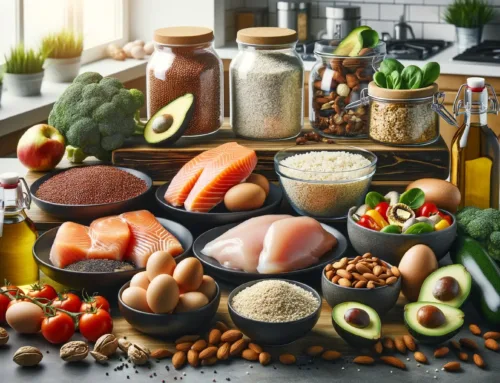
Bloating during PMS can feel like an unsolicited hurdle in your wellness journey. But take heart, ladies! By understanding why it happens and making informed lifestyle tweaks, you can conquer this monthly nuisance. Let’s delve into how.
Understanding PMS Bloating
Have you ever experienced a sudden increase in your waistline a few days before your periods? Or felt like a balloon ready to burst? Welcome to the world of Premenstrual Syndrome (PMS) bloating. It’s a common symptom many women experience in the lead-up to their periods.
PMS bloating is not just your imagination running wild; it’s a real physical symptom. It occurs due to hormonal fluctuations during your menstrual cycle, specifically the rise and fall of progesterone and estrogen levels. These changes can lead to fluid retention and gas build-up, making you feel bloated.
Despite the discomfort, it’s crucial to remember that PMS bloating is not a sign of any personal failing—it’s a normal part of many women’s menstrual cycles.
When Does Period Bloating Occur?
Bloating usually begins to kick in a week before your period starts due to hormonal changes in your body. Specifically, fluctuations in progesterone and estrogen cause your body’s cells to retain more water and salt. This phase is commonly referred to as the premenstrual phase or the luteal phase.
Why Do Periods Cause Bloating?
Periods cause bloating as much bloating is a common side effect of the hormonal roller coaster your body rides every month. Your hormones, namely progesterone and estrogen, fluctuate throughout your menstrual cycle. When these levels plunge just before the onset of menstruation, it triggers a drop in serotonin, a brain chemical linked to mood states. This hormonal shift can lead to water retention and gas, both of which result in bloating.
How Can You Treat and Relieve Period Bloating?
A proactive approach to managing PMS bloating can make all the difference. Here are some strategies to keep menstrual bloating at bay.
Hydration Station: The Power of Water
Like many of these tips, hydration should be your focus at all times of the month, not just before your cycle starts. Proper hydration has many benefits including better digestion, reduced headaches, skin health, and may even help with fluid retention. Aim for 1L per 50 pounds of body weight, and add an extra 500 mL for every hour that you are active in the day.
Skip Alcohol and Caffeine
Both alcohol and caffeine can lead to dehydration which can further increase bloating. They may also worsen PMS symptoms.
Exercise Regularly
Regular physical activity can help reduce water retention and alleviate bloating. It also boosts your mood and helps combat other PMS symptoms.
Make Sure You Are Getting These Key Nutrients
Iron
Iron may play a role in PMS, particularly the mood-related symptoms. Prior to menstruation, shifting levels of estrogen and progesterone decrease the amount of serotonin, or happy hormone, in the brain. This can affect your mood and trigger depression, anxiety or irritability. Iron is involved in the conversion of tryptophan to serotonin, so having adequate levels may help to lessen this effects and help keep mood stable and elevated.
Iron-rich foods: beef, oysters, turkey, chicken, legumes, cashews, dark green leafy vegetables, fortified breakfast cereals and breads, pumpkin seeds, tofu, dark chocolate.
B-Vitamins
B-vitamins (thiamine, niacin, riboflavin, folate, B12, B6), all play a role in the development of various neurotransmitters that affect our mood. Evidence suggests that low-intake of B-vitamins may contribute to mood-related symptoms of PMS such physical symptoms such as irritability, anxiety, depression. Ensuring adequate intake of these nutrients may help reduce PMS symptoms.
Vitamin B-6: meat, fish, whole grains, avocados, bananas, peanuts, soybeans
Vitamin B-12: meat, fish, dairy, eggs, nutritional yeast
Riboflavin: fortified cereals, almonds, whole grains, mushrooms, eggs, dark green vegetables, dairy products
Niacin: turkey, chicken, peanuts, tuna, oatmeal, cheese, organ meats, fish (tuna, salmon, trout), tempeh, beans, pumpkin seeds
Thiamine: fortified breakfast cereals, enriched breads and pasta, green peas, lima beams, soy milk, mussels, pickerel, salmon, tuna, beans, lentils, nuts & seeds
Calcium & Vitamin D
Some studies suggest that low intake of calcium and vitamin D can lead to increased severity of PMS symptoms such as mood changes and fluid retention. The relationship is not exactly clear, but it may be due to the role that these nutrients play in accordance with estrogen and bone health. Vitamin D helps the body to absorb calcium, so making sure you are getting enough from food or sunshine daily is critical. If you spend much of your time indoors, you may want to consider a Vitamin D supplement.
Calcium rich-foods, potassium rich foods: seeds (poppy, sesame, chia), sardines and canned salmon, almonds, whey protein, collards, kale, tofu, amaranth
Vitamin-D sources: fatty fish (salmon, mackerel, sardines, herring, trout), fortified milk products, eggs, fortified orange juice
Magnesium
Studies of magnesium supplements have shown that they may help with reducing the symptoms associated with fluid retention in the body such as bloating and puffiness. In addition, reduced magnesium levels have been linked with depression , as well common symptoms such as headaches and migraines. However, before you reach for a supplement, focus on intake from food first.
Magnesium-rich foods: spinach, swiss chard, tempeh, beans, quinoa, nuts & seeds, salmon, mackerel
Watch the Salt
Dropping levels of progesterone prior to your menses may increase your cravings for higher calorie, salty foods, but instead of reaching for that hamburger and fries, consider choosing healthier options lower in sodium.
Sodium restriction, or limiting high sodium foods (like deli meats, soy sauce, condiments, packaged and processed foods;) can help to reduce the fluid restriction that commonly occurs in the 1-2 weeks before a woman’s period. This can help reduce bloating, breast tenderness and swelling.
Caffeine
Caffeine intake has been shown to worsen other symptoms of of PMS such as anxiety, poor sleep and irritability, as it can increase the body’s level of cortisol, a stress hormone. Caution the amount of caffeine you consume, avoid energy drinks, and try to stick to 1-2 cups per day of coffee or caffeinated tea, at least 6 hours before bedtime.
Caution Sugar
We often crave carbs (sugary foods, bread, pasta) before our period starts – but why? Prior to our periods, our body experiences a dip in serotonin due to fluctuating hormone levels. To boost our levels of serotonin, we crave carbohydrates because they provide tryptophan, an amino acid that is the precursor to this happy hormone.
However, choosing white, refined carbs and sugary foods like white bread, pasta, and desserts can lead to blood sugars spiking and dropping, causing a surge of insulin which leads to increased fluid retention as well as disrupted mooв. Instead, reach for whole grains and high fiber foods, and try to limit or avoid refined carbohydrates.
Exercise
Although symptoms like cramping, bloating, digestive issues may make us feel like working out is the last thing we want to do, it is important to keep moving! Exercise helps to improve our mood by releasing endorphins, and lowering our cortisol (stress) levels, and can help improve digestion as well. The benefits of regular exercise really are endless.
Need help getting started with your workout routine? We are happy to help! Set a free consultation with Build My Body Beautiful’s team of experienced certified personal trainers in our downtown Toronto fitness studio.
Bottom Line. Reduce Period Bloating
There is evidence to show that certain nutrient deficiencies, inadequate fluid intake, and less than optimal food choices may contribute to experiencing one or many of the symptoms of PMS. Although not a definite cure, making lifestyle and diet changes is definitely the first-line of treatment for PMS.
To keep PMS bloating at bay and lead a more comfortable life, consider these effective strategies to reduce period bloating:
- Stay Hydrated: Drink plenty of water to keep your digestive system functioning smoothly and counteract water retention.
- Eat Wisely: Opt for whole grains, fruits, vegetables, and lean proteins. Avoid salty, fried, or sugar-laden foods that can exacerbate bloating.
- Cut Back on Alcohol and Caffeine: These can cause dehydration and worsen PMS symptoms.
- Exercise Regularly: Regular physical activity can help reduce water retention and alleviate bloating, while also lifting your mood.
- Consult a Professional: When in doubt, don’t hesitate to seek professional help. Particularly if you’re considering dietary supplements, it’s essential to consult your primary physician or a certified dietitian.
Taking into action some or a few of these recommendations may help you enjoy a woman’s daily life, rather than dread your monthly cycle. After all, we should celebrate being women and all the wonders that come along with it!
If you have any concerns about nutrients discussed in this article and are considering supplementation, speak to your primary physician or book an appointment with our Sports Dietitian in Toronto to find out if a supplement is necessary for you.



